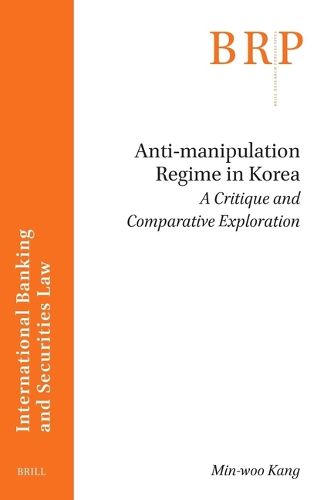Readings Newsletter
Become a Readings Member to make your shopping experience even easier.
Sign in or sign up for free!
You’re not far away from qualifying for FREE standard shipping within Australia
You’ve qualified for FREE standard shipping within Australia
The cart is loading…






In Anti-manipulation Regime in Korea: a Critique and Comparative Exploration, Min-woo Kang provides a comprehensive and critical discussion of the market manipulation regime in Korea, together with a comparative analysis of the corresponding legislations and regulations in major jurisdictions, such as the US and the EU. Particular emphasis is placed on the critiques of the current legal system and suggestions for improvement in some important aspects, which include, inter alia, reforms of the two-tiered hierarchical system in law enforcement that heavily relies on criminal sanctions and the regime of algorithmic and high-frequency trading that is void of statute regulation. Based on an array of legal materials and thorough analysis of legislation and precedent, the author has convincingly argued for amending the Korean law considerably. Certainly, regulators, academics and practitioners interested in Korean capital market regulations will likely find this as a good reference.
$9.00 standard shipping within Australia
FREE standard shipping within Australia for orders over $100.00
Express & International shipping calculated at checkout
In Anti-manipulation Regime in Korea: a Critique and Comparative Exploration, Min-woo Kang provides a comprehensive and critical discussion of the market manipulation regime in Korea, together with a comparative analysis of the corresponding legislations and regulations in major jurisdictions, such as the US and the EU. Particular emphasis is placed on the critiques of the current legal system and suggestions for improvement in some important aspects, which include, inter alia, reforms of the two-tiered hierarchical system in law enforcement that heavily relies on criminal sanctions and the regime of algorithmic and high-frequency trading that is void of statute regulation. Based on an array of legal materials and thorough analysis of legislation and precedent, the author has convincingly argued for amending the Korean law considerably. Certainly, regulators, academics and practitioners interested in Korean capital market regulations will likely find this as a good reference.